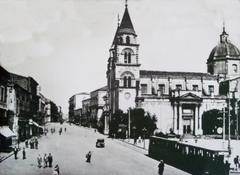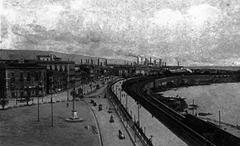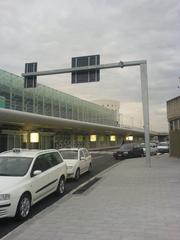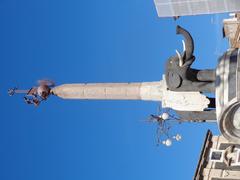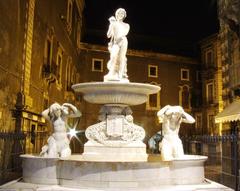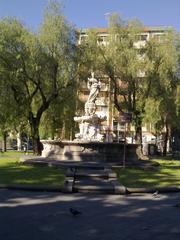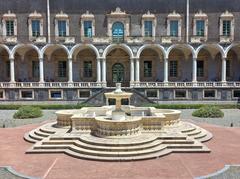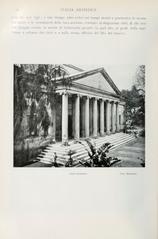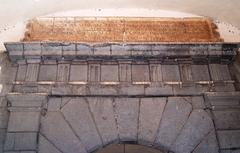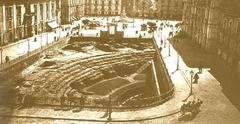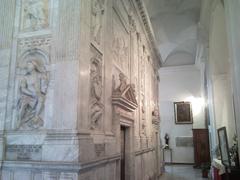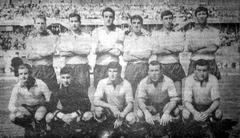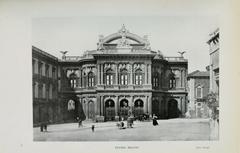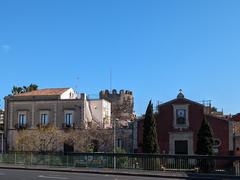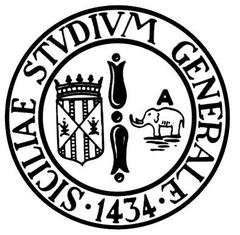
Museo Belliniano Catania: Visiting Hours, Tickets, and Attractions Guide
Date: 04/07/2025
Introduction
Nestled in the heart of Catania, Sicily, the Museo Belliniano is a vibrant cultural institution dedicated to Vincenzo Bellini, one of Italy’s foremost opera composers. Housed in the historic Palazzo Gravina Cruyllas—Bellini’s birthplace—the museum offers visitors a rich immersion into the composer’s life, the evolution of Italian opera, and the Baroque charm of Catania’s city center. This detailed guide covers all essential aspects of visiting the Museo Belliniano, including hours, ticket options, accessibility, collections, and travel tips, ensuring a rewarding and well-prepared experience for every traveler.
For the latest updates and official information, consult the Comune di Catania tourism page and the Museo Belliniano official website.
Table of Contents
- Introduction
- Historical Background
- Visitor Information
- Artistic Collections and Exhibits
- Practical Visitor Tips
- Cultural Importance and Community Impact
- Artistic and Architectural Context
- Frequently Asked Questions (FAQ)
- Visuals and Media Recommendations
- Internal Links
- Conclusion and Final Tips
- References
Historical Background
Founding and National Monument Status
The Museo Belliniano’s origins trace back to 1919, when the Real Circolo Bellini of Catania initiated efforts to preserve the composer’s birthplace. With support from national figures—including King Vittorio Emanuele III and Benito Mussolini—the Palazzo Gravina Cruyllas was declared a national monument in 1923. The museum officially opened its doors on May 5, 1930, marking a milestone in the city’s dedication to Bellini’s legacy (Museo Civico Belliniano).
Inauguration and Development
Since its inauguration, the Museo Belliniano has continually expanded its offerings while preserving the authentic atmosphere of Bellini’s family home. Notable developments include the 2023 launch of the Museo Multimediale Vincenzo Bellini, a multimedia experience that brings Bellini’s life and works to life through interactive and audiovisual installations. The museum is now recognized not only as a monument to Bellini but also as a vital center for musicology and cultural education (Museumspedia).
Cultural Significance
Bellini, celebrated as “il cigno catanese” (the Swan of Catania), profoundly influenced 19th-century opera with masterpieces such as “Norma,” “La sonnambula,” and “I puritani.” The museum’s existence strengthens Catania’s identity, fosters international recognition, and serves as a bridge between local heritage and global musical culture (Comune di Catania).
Visitor Information
Location & Access
- Address: Piazza San Francesco d’Assisi n. 3, 95124 Catania, Italy
(Official Website) - Centrally located within walking distance of Catania Cathedral, Piazza del Duomo, Teatro Massimo Bellini, and Castello Ursino.
- Public Transport: Easily accessible via city buses and taxis.
- Parking: Limited street parking and paid garages nearby; public transport is recommended during peak times.
Opening Hours
- Monday to Saturday: 9:00 AM – 7:00 PM
- Sunday and Public Holidays: 9:00 AM – 1:00 PM
- Check for seasonal changes or special events on the official website.
Ticket Prices
- Standard Ticket: €5.00–€6.00 (includes access to Museo Emilio Greco)
- Reduced: €2.00–€4.00 (minors 10–18, over 65, university students under 26, residents, groups, families)
- School Groups: €1.00 per student
- Free Admission: Children under 10, Catania Pass holders, and often EU citizens under 18
- Purchase: At the entrance or online; group and guided tour bookings recommended in advance (CityMap Sicilia)
Accessibility
- Physical Accessibility: Due to the historic nature of Palazzo Gravina Cruyllas, some exhibition areas may not be fully accessible for visitors with mobility impairments. Contact the museum in advance for assistance.
- Facilities: Restrooms available; no dedicated cloakroom—large bags may need to be left at the entrance.
Guided Tours & Multimedia Experience
- Guided Tours: Available by reservation in Italian and English. Ideal for in-depth exploration of Bellini’s life and works.
- Multimedia Room: Features interactive exhibits, virtual tours, and audio-visual experiences suitable for all ages.
- Music Library & Study Center: Access to rare editions and scholarly resources for music researchers.
Nearby Attractions
- Catania Cathedral: 5-minute walk
- Castello Ursino: 10-minute walk
- Teatro Massimo Bellini: 7-minute walk
- Ancient Roman Theatre & Odeon: Short walk from the museum
- Museo Emilio Greco: Included in ticket
- San Francesco d’Assisi all’Immacolata: 2-minute walk
- Local Cafés & Shops: Sample Sicilian cuisine and artisan crafts nearby
Artistic Collections and Exhibits
Manuscripts & Artifacts
- Original Manuscripts: Autographed musical scores and preparatory studies, offering insight into Bellini’s creative process (Museumspedia).
- Period Instruments: Bellini’s family pianos and other period instruments.
- Personal Artifacts: Portraits, letters, personal items, and Bellini’s wax death mask.
- Historical Playbills & Posters: Documenting the composer’s operatic triumphs.
Multimedia Installations
- Immersive Projections: Opera scene excerpts, reconstructions of historic theaters, and period imagery.
- Audio-Visual Experiences: Listen to famous arias and explore Bellini’s influence in a multisensory environment.
- Interactive Displays: Designed to engage both classical music aficionados and general visitors.
Thematic Layout
- Chronological Path: Begins at Bellini’s birth alcove, traversing the family’s living quarters and ending in the multimedia research room.
- Preserved Architecture: Hexagonal tiles, vaulted ceilings, balconies overlooking Via Vittorio Emanuele, and an internal courtyard well.
- Educational Programs: Temporary exhibitions, concerts, and events, especially during anniversaries and festivals.
Practical Visitor Tips
- Best Time to Visit: Weekday mornings for a quieter experience; spring and autumn for pleasant weather.
- Photography: Usually allowed without flash or tripod; confirm at entrance.
- Language: Most signage is in Italian; inquire about English tours or materials.
- Booking: Recommended for groups and guided tours.
- Combined Tickets: Entry often includes Museo Emilio Greco; Catania Pass offers further discounts or free admission.
- Duration: Plan 45-90 minutes for a thorough visit.
Cultural Importance and Community Impact
The Museo Belliniano is a beacon of local pride, serving as both a tourist attraction and an educational hub. Its archives are invaluable for researchers, and its outreach programs foster music appreciation among young people. The museum’s role in local festivals and international collaborations highlights Bellini’s enduring influence and Catania’s ongoing commitment to cultural heritage (Comune di Catania, Museumspedia).
Artistic and Architectural Context
Housed in the 18th-century Palazzo Gravina Cruyllas, the museum is itself an architectural highlight. The Baroque building incorporates lava stone, reflecting Catania’s unique architectural style shaped by Mount Etna’s eruptions. The setting enhances the museum’s authenticity and situates Bellini’s legacy within Catania’s urban and historical landscape (Museumspedia, The Thinking Traveller).
Frequently Asked Questions (FAQ)
Q: What are the Museo Belliniano visiting hours?
A: Monday to Saturday: 9:00 AM–7:00 PM; Sunday and public holidays: 9:00 AM–1:00 PM.
Q: How much are Museo Belliniano tickets?
A: Standard ticket: €5–€6; reduced rates for students, seniors, and residents; free for children under 10 and Catania Pass holders.
Q: Is the museum wheelchair accessible?
A: Some parts may not be fully accessible; contact the museum for specific assistance.
Q: Are guided tours available?
A: Yes, by reservation in several languages.
Q: Is photography allowed?
A: Usually, yes—without flash or tripod.
Q: Does the ticket include other museums?
A: Standard admission includes Museo Emilio Greco.
Visuals and Media Recommendations
- High-quality images of the museum’s Baroque façade, interior rooms, and key artifacts (with alt text such as “Museo Belliniano entrance in Catania historical site,” “Bellini autograph manuscript at Museo Belliniano,” and “Museo Belliniano tickets and entrance”).
- Virtual tours and interactive maps are available on the official website and CityMap Sicilia.
Internal Links
Conclusion and Final Tips
The Museo Belliniano is an essential stop for anyone interested in the rich tapestry of Sicilian art, music, and history. Its thoughtfully curated collections, multimedia experiences, and prime location make it an ideal addition to your Catania itinerary. Check official sources for the latest information, consider booking a guided tour, and enhance your experience with the Audiala app for audio guides and event updates. Engage with Catania’s vibrant cultural scene and discover how the legacy of Vincenzo Bellini continues to inspire visitors from around the world.
References
- Museo Belliniano Visiting Hours, Tickets & Guide to Catania Historical Site (Comune di Catania)
- Museo Belliniano: Visiting Hours, Tickets, and Exploring Catania’s Historical Sites (Museumspedia)
- Visiting Museo Belliniano in Catania: Hours, Tickets, and Historical Highlights (Museo Civico Belliniano)
- Museo Belliniano Visiting Hours, Tickets, and Guide to Catania’s Historical Site (CityMap Sicilia)
- Museo Civico Belliniano Facebook (Museo Civico Belliniano)
- Catania Italiani: Museo Civico Belliniano (Catania Italiani)
- Enjoy Sicilia: Museo Civico Belliniano (Enjoy Sicilia)
- Voyage Tips: Things to Do in Catania (Voyage Tips)
- The Thinking Traveller: Catania (The Thinking Traveller)

